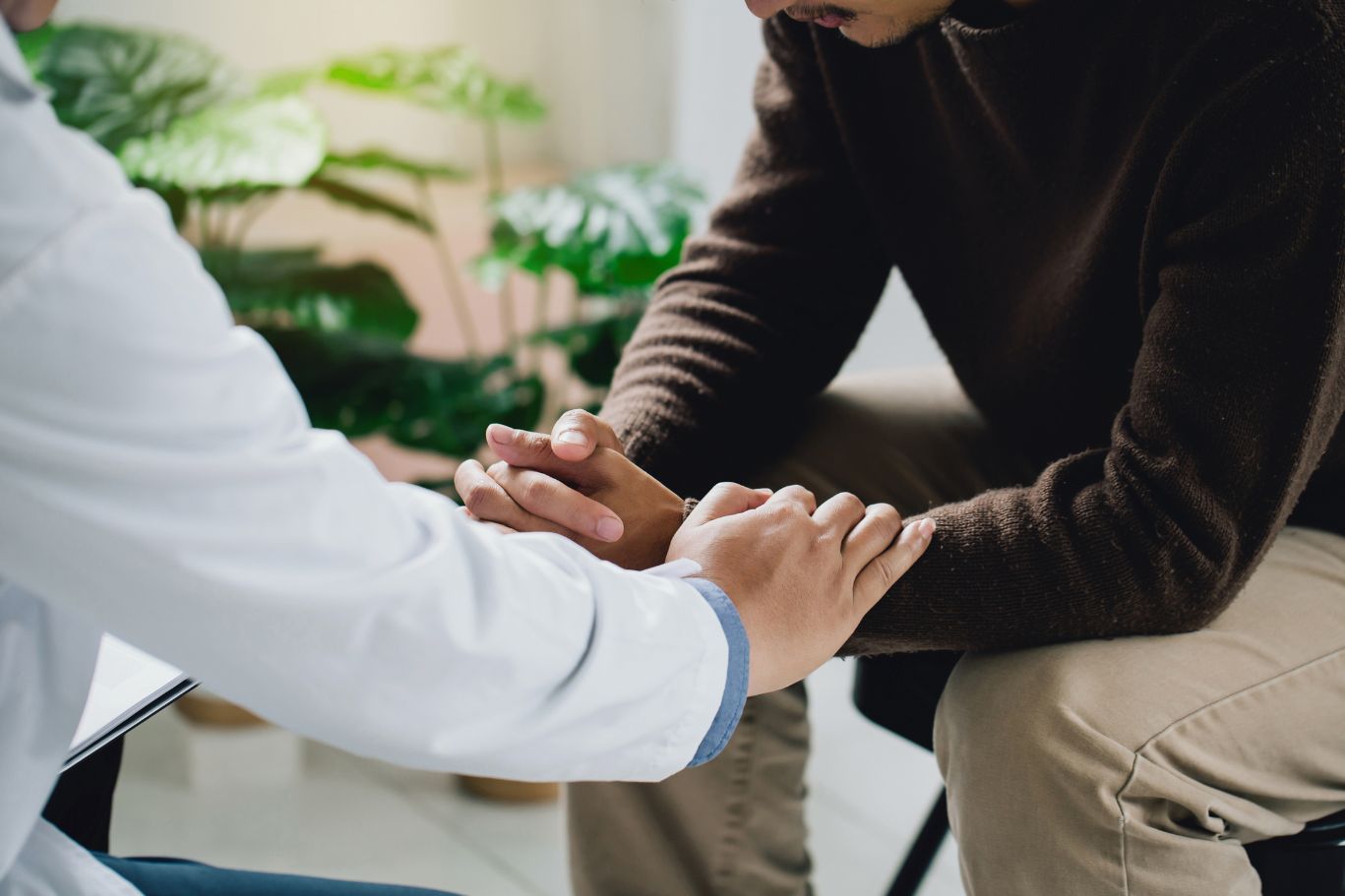
Hope in Action: How Harm Reduction is Changing Lives
In the often overlooked corners of our community, where despair can seem inescapable and hope elusive, Ritter Center has taken a bold and compassionate stand. Harm reduction, at its core, is about more than just mitigating risks; it’s about rewriting narratives, restoring dignity, and rebuilding lives from the ground up. Through this approach, Ritter Center extends not just resources but a powerful invitation to reimagine what’s possible, to chart a new course toward wellness and self-sufficiency.
At Ritter Center, harm reduction is an act of courage. It’s about meeting individuals exactly where they are, without judgment, and offering them the tools they need to survive and thrive.
Specifically, harm reduction services at Ritter Center offer:
-
Connection to education and counseling
-
Distribution of overdose reversal medications
-
Minimization of drug-related harms (infectious diseases, including HIV, viral hepatitis, and bacterial and fungal infections)
-
Reduction of disease transmission by equipping people who use drugs with sterile supplies
-
Overdose death prevention via promoting linkages to care
-
Stigma reduction
-
A philosophy of hope and healing by employing individuals with lived experience in leadership roles
-
Community building by increasing protective factors for people who use drugs while supporting their families
Brianna Doyle, Substance Use Care Coordinator, has been instrumental in shaping this initiative. “We recognized an urgent need within our community, and we responded by creating our own harm reduction room,” she explains. “We stocked it with items that are in high demand—smoking kits, sharps containers, pipes, and syringes—along with hygiene kits filled with essentials like deodorant, razors, condoms, socks, and underwear, which our patients often lack access to.”
Word of these resources spreads quickly, often through informal networks, as those struggling with substance use seek out ways to support one another. “Even in the midst of addiction, there is a desire to protect and uplift each other,” Brianna reflects. “For some, using drugs is a means of survival, a way to stay awake and avoid danger. It’s through our harm reduction program that we connect with individuals who might otherwise remain invisible. A simple supply can be the catalyst for deeper conversations about health, education, and treatment. That initial contact is a doorway to so much more—sometimes it’s the first step on a path to recovery.”
Tamara Stewart, a Substance Use Disorder Counselor, brings deep commitment to her work, focusing on what happens after the treatment ends. Her dedication ensures that the individuals she serves don’t just survive—they flourish.
“The moment someone leaves residential treatment, drug court, or probation is critical,” Tamara emphasizes. “I help them focus on how to live their lives beyond the confines of their past. Without the right support, the risk of falling back into old patterns is high. That’s why I work with clients to develop a discharge plan before they’re released from jail or prison. Whether they’re striving to get clean or simply need clean supplies, we’re here for them, ready to meet them wherever they are.”
For Tamara, the work is deeply personal. “We have the ability to show people what’s possible, to provide them with the resources to stay sober while building a community of peers who understand their journey,” she says.
“Addiction is isolating. It makes you feel as though you’re the only one who’s ever struggled in this way. That’s why people feel safe in treatment centers, jails, and prisons—there, they’re surrounded by others who get it.”
Tamara’s approach is thorough and holistic. She conducts detailed assessments to gauge the risk of relapse, considering factors like withdrawal symptoms and the safety of a client’s living environment. She then collaborates with them to create a tailored care plan, which might include an intensive outpatient program.
“I want them to show up every day, on time,” she says with conviction. “In those individual counseling sessions, they can set goals, develop coping strategies, and tackle the challenges that might otherwise derail their progress, such as finding stable housing. If they’re doing well, I make sure that gets communicated in their progress reports, which can even help them get off probation earlier. Sobriety is hard-earned, and it’s our responsibility to ensure they have the support they need to maintain it.”
At Ritter Center, harm reduction is more than just a strategy—it’s a movement. It’s a relentless pursuit of change, driven by the belief that every person, no matter where they start, can build a future filled with possibility.
Through this comprehensive approach, Ritter Center is not just addressing immediate health needs—it’s laying the groundwork for lasting recovery, one life at a time.